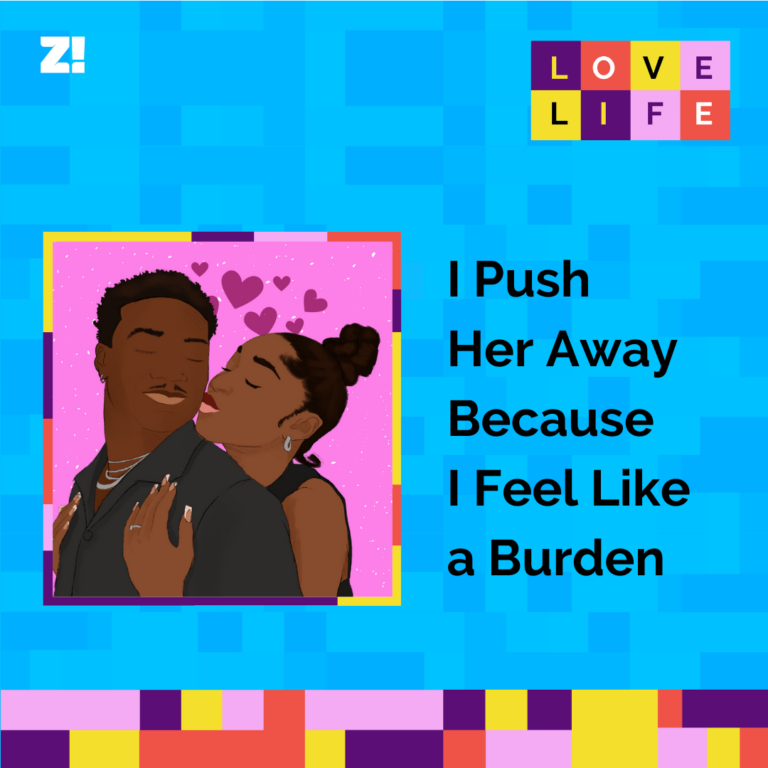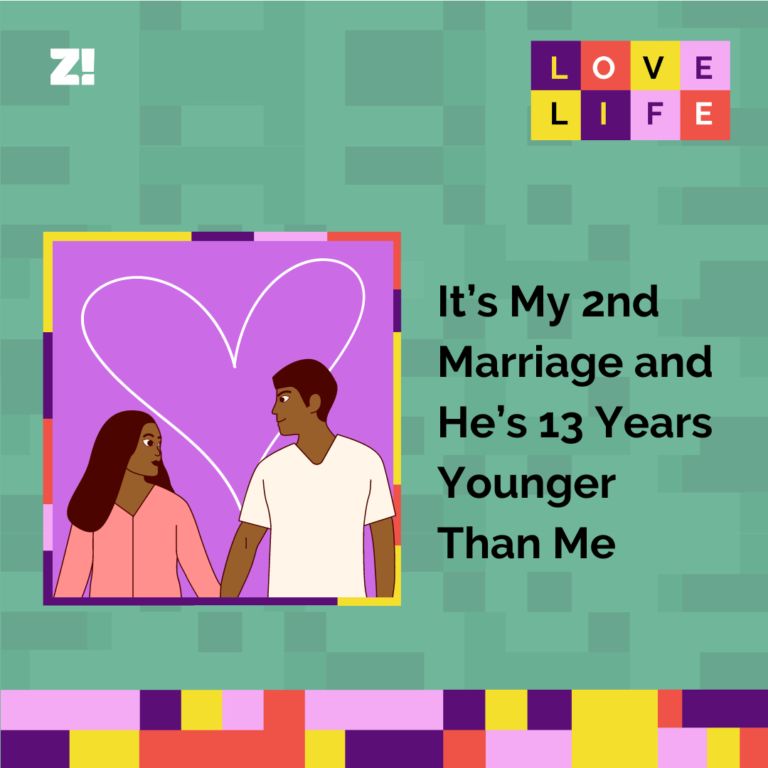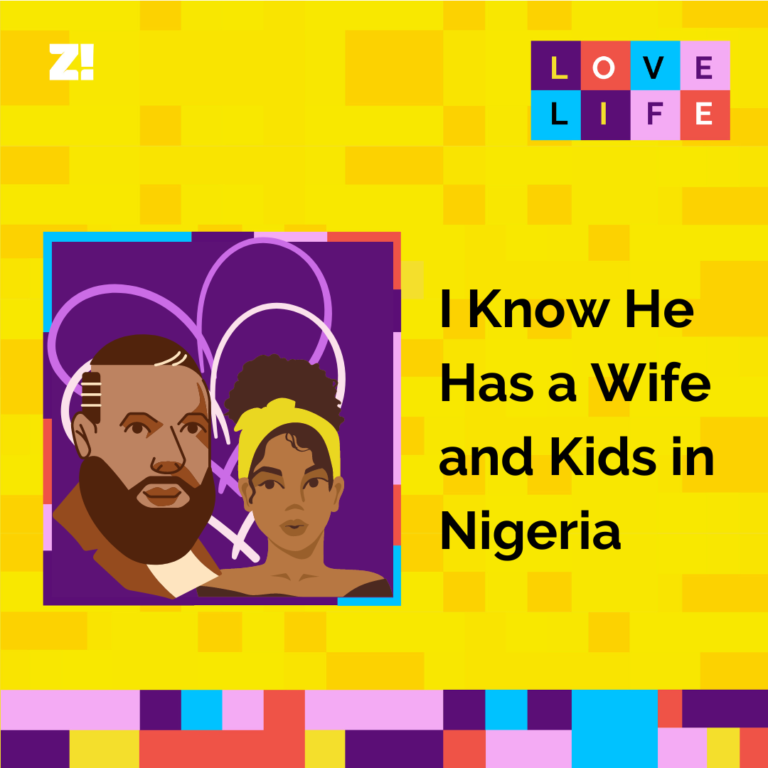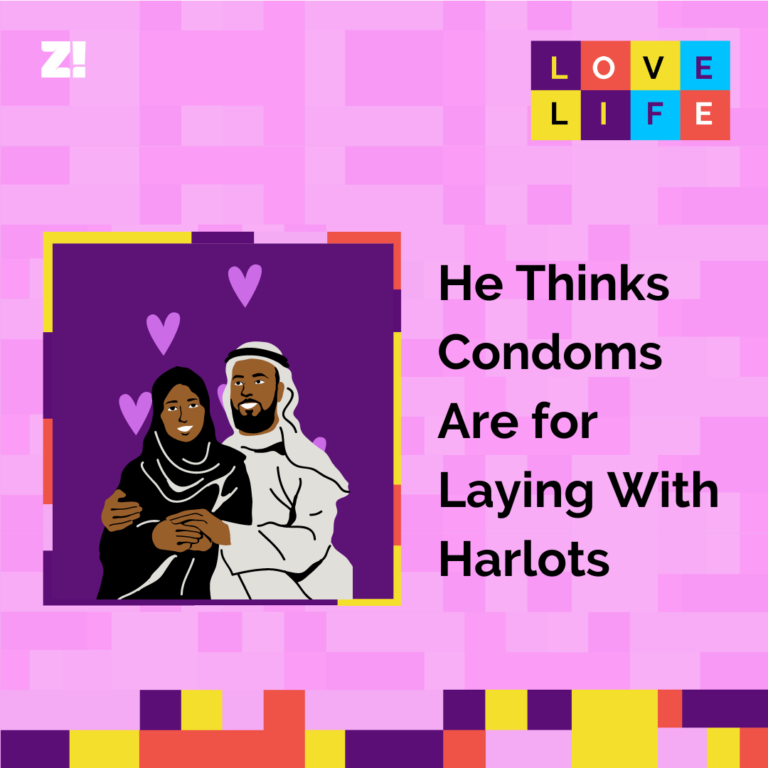Navigating life as a woman in the world today is interesting. From Nigeria to Timbuktu, it’ll amaze you how similar all our experiences are. Every Wednesday, women the world over will share their experiences on everything from sex to politics right here.
Photo by Good Faces on Unsplash
This week’s #ZikokoWhatSheSaid subject is a 23-year-old Nigerian woman. She tells us about discovering her feminism, pansexuality and atheism through books while living with her close-knit conservative family.
What’s something about your life that makes you happy?
I’m enjoying being single right now. I don’t have commitments to anybody, and I don’t need to make weird decisions based on what society expects in relationships.
My last serious relationship was in 2018 when I was in year two at university. Right after that, I got into a toxic and demeaning situationship with an older guy, that went really bad. I was 19, and he was manipulative, so it was difficult to get out of it. Those two years were a character development phase for me, and I’ve only been in situationships since then.
Since the first situationship was so toxic, why did you enter more of them?
I’m scared of being in a proper relationship. And this is because I just don’t like most of the people who’ve approached me, or they’re misogynists. Or I don’t like them because they’re misogynists.
How do you know they’re misogynists right away?
Through conversation? The last time I met someone who wanted to be in a relationship with me, we had a very telling conversation. And I have some red flags that make knowing easier for me. One of them is if you’re anti-LGBTQ.
For me, feminism and freedom of sexual and gender identity are inseparable. If you claim to be a feminist man, you need to understand people can make choices on who their partner should be too. When you meet some men, they’ll say, “I’m a feminist, but….” Just know the ‘but’ will reveal how they’re not feminists because they’ll give an excuse. It’ll be “but you should understand….”
No, I want someone who understands the basics of equality.
And the guy you met?
He wasn’t LGBTQ. He said, “I don’t have a problem with them, but….” He might as well have said, “I’m a feminist, but….” Apart from that, he randomly asked me, “Do you know how to cook?” I said no, and he was like, “It’s a lie because if you grew up in an African home, every mother teaches their daughter how to cook”.
He started talking about how he knows it’s not compulsory, but he thinks a woman should know how to cook. Meanwhile, he didn’t know how because his mom didn’t teach him, and his daddy didn’t like men entering the kitchen. He was obviously not a feminist. That turned me off immediately.
Understandable. So how do these casual relationships work?
I’m a fool because I expect exclusivity in them. I think it’s the boyfriend-girlfriend tag I don’t want. I just want a go-to person I can see regularly, who’s not my boyfriend. And I’m terrible at casual relationships for someone who always finds a way to enter them because I always end up catching feelings.
There’s no avoiding those, I fear
I know. In my last situationship, the person was my G. We were just friends who started liking each other, and something happened. I was scared he would want something serious after that, so I told him I didn‘t want us to continue since I wasn’t ready for that. He assured me he didn’t want anything, and that’s when I caught feelings.
This only ever happens when I know the other person is not interested. Once it looks like the person likes me back, I run away. I don’t even know what my problem is, but I’m not interested in any kind of dating right now. And of all the new people I’ve met, none of them is giving.
What was growing up like for you, considering your progressive beliefs?
First of all, from JSS 1, my parents sent me off to boarding school, and I hated all the flogging and shouting there. But back home on holidays, my family was pretty close. Like most girls in the average Nigerian family, I was an omo get inside. I wasn’t allowed to go out. Once I’m home for even a midterm break, I’m locked in. I wasn’t allowed to attend my friends’ birthday parties. I wasn’t even given a phone until after I graduated from secondary school.
This is probably why I prefer to stay indoors now; I’m so used to it. I was always monitored, and I was never given a reason why. I got no allowance, so I couldn’t even sneak out, and if I was caught outside, I’d be flogged. It was just my siblings and me, reading books and watching TV indoors, all day every day, while our parents went to work. My mom would usually be home earlier than my dad; he was hardly available except on Sundays and some Saturdays. So I wasn’t comfortable with him because he was like a guest in our home.
Were you religious like the average Nigerian family?
Yes. We went to church every Sunday and for some weekday services too. When I was younger, we attended MFM, so we would always go to camp. Then we moved to Redeem and continued the trend. We never missed crossover services in particular.
We always had to go to church to cross over into the New Year and have the pastors pray over water and oil to rub on our heads. My parents would always remind us that God doesn’t like this and that, you’re supposed to do this as a child, and this is a sin.
And how did you feel about all that?
It felt normal, actually. I mean, I didn’t know any other way. And it wasn’t in my face that we were religious or my parents were restrictive. I enjoyed some things about my childhood. Like, on Saturdays, my dad would take us to the tennis club. On Sundays, we would go to restaurants.
We went to Apapa Amusement Park a lot because my dad worked in Apapa. We also visited my extended families, and I enjoyed seeing my cousins and gisting with them. Every December 25, my parents threw Christmas parties, inviting our extended family, and my cousins would stay over for a week or two. I enjoyed that a lot.
So I’m curious. How did you go from this everyday Nigerian daughter to having the strong beliefs you have now?
It started with feminism. When I was 17, and in secondary school, I read Chimamanda’s book, We Should All Be Feminists. I liked her definition of feminism and understood why ‘We Should All Be Feminists’. Growing up, I remember feeling cheated when I heard men say you’re supposed to do this and that.
I think every woman has some gender rules they’re uncomfortable with, but they’ve just gotten used to them. They’d say things like, “What can I do? It’s a woman’s place.” Early on, I decided I wouldn’t accept it. Feminism formed my understanding of the LGBTQ community and also led me to atheism.
In university, I studied sociology and learnt that society shapes who we are. The kind of family we come from, the environment we grew up in, the religion we were born into and the type of school we went to, all shape us. People aren’t a certain way because they were born like that; society shapes them. People are different because of how they grew up and the values they picked up as children and adults.
If that’s true, why didn’t you remain conservative as your family shaped you to be?
Family is the primary agent of socialisation, but my family sent me to boarding school.
I learnt a lot through books I read in the hostel and when my parents locked me up at home. We Should All Be Feminists was probably the first non-children’s book I read. Then A Woman Is No Man by Etaf Rum, and another Chimamanda book, The Thing Around Your Neck, which spoke about how the British colonised us through religion. It’s one of the vital moments I’ve had when I started asking questions about religion. Why didn’t God help black people when they were mistreated?
Then, I started Googling things. I found out the Bible contained more chapters, and the King James Version was shortened by an actual King James; a British King. I learnt that Christianity was infused with politics; the church was the state, so they made religious decisions and wrote their version of the Bible to take advantage of people.
That must’ve been a lot to discover so young. How did you process it?
As a sociologist, you ask questions like, is this book objective? And you find out there’s no book in the world that’s objective. The Bible is an account of people, their ways of life and the ideologies of society in those ancient times. When I read the Bible in secondary school, it was like it was against humanity and was meant to subjugate women.
People give their different interpretations of it — “No, it means you should love” — but it’s clear with words like ‘submission’, ‘subjugation’, ‘a woman should not climb the pulpit’, ‘she should not preach’. At that time, I wasn’t even an atheist. I just thought the Bible was ancient, and the people in it were practising the culture of their time. Times have changed, we’re civilised, so we’re not supposed to follow what happened then.
But as I read more and more about how women were not allowed to go to the market during their period because they were considered dirty, and in the New Testament, Matthew, Mark, Luke and John have different accounts of Jesus’ life, I realised the Bible is different people’s biased perspectives. I was about 20 years old when I decided I won’t take directions from it anymore.
Big decision
Yes, but it was strangely an easy one to make knowing the things I knew. I went to the root of Christianity and how it came from older religions, read about the evolution of religion itself and about our own gods. Then I formed a theory that maybe God exists; people just serve him in different ways because we’re from different societies.
When I read how Chinua Achebe and Chimamanda wrote about traditional prayer in the olden days, it’s similar to how Christians pray now. So when I see Nigerian Christians pray, I’m like, “You’re just praying to a foreign God.”
RELATED: 9 Nigerians Tell Us About Their Journey To Atheism
So why did you become an atheist instead of a traditionalist?
Because I realised nobody’s coming to save you.
There were points in my life when I was really down. I was in a toxic relationship, like I mentioned earlier, I was so young, and it was terrible for me. My self-esteem had gone to shit, and I felt very bad about myself.
I prayed and I cried, and nothing happened. Just looking back at my life, secondary school, primary school, I’ve had times when I pray to God for things, and when nothing happened, I’d just say maybe it’s not God’s will. And I realised we keep on making excuses for him.
How did you realise this exactly?
When I was in SS 1, they kidnapped the Chibok girls. I heard the news, fasted and prayed with so much faith because I believed faith could move mountains. I had so much faith that if I fasted as a child, something miraculous would happen, and the girls would be released.
But you know how the story went. Was it that God didn’t want it to happen? Was it not God’s will for the girls to be released? Since I started taking control of my life and decisions, it’s felt better not to hope for miraculous things. There’s nobody out there coming to save or help you.
And now, you no longer believe he exists?
My atheism is still evolving. Sometimes, I think he exists, but I’m just angry at him. Terrible things are happening in the world, and he’s not doing anything. I wonder why. People are getting killed. Girls are getting abducted, raped. Women are being treated anyhow, and good people suffer a lot in the world. In the Bible, they’ll tell you this is the reason. Sometimes, they’ll just tell you to do things without giving any reason, and I just can’t live like that.
These days, I’m also discovering things about the universe, how it’s much bigger than our Milky Way. I think the universe is too big for one person to control. I also don’t believe there’s heaven or hell. I’d rather just be on my own, make my own decisions, live my life the way I want and just be kind to people.
As for feminism, was there a defining moment that made what you read about in books more personal?
My earliest memory of feeling violated as a woman was in secondary school, even though I didn’t think of it deeply at the time or relate it to feminism. I was walking on the road with my friend, and this man tapped me to ask for my number. I said no. He was a much older man, and I think he was drunk. He was drinking pure water, and he just threw it at me.
I was very scared because I couldn’t confront him. I thought he would beat me. Things like that make me very sad. I’ve been groped on the road once before. And you just go to one corner and cry because you can’t do anything about it, especially when you’re young. I was sexualised a lot, growing up.
I’m so sorry
I’ve also seen it happen to others. One time during NYSC, a female flagbearer was marching, and because of the way she moved, a guy just shouted that she’ll know how to do doggy very well. It just gets to me when boys make rude comments about girls and their bodies, especially dismissively.
One other time, we were doing inter-house sports in secondary school, and a boy made a comment about a girl’s body, that her big bum bum was making her float. I don’t understand why people talk about women like that. It feels weird and wrong, and it makes me upset.
Did you talk about it to your mum or someone close?
No. I’m constantly fighting in my house sef because I have a younger brother who has a free pass to do whatever he wants, and I don’t. Growing up, my brother could go out and visit friends. But my sister and I were always locked inside and constantly harrassed with, “Where are you coming from? Where are you going to? Who are you talking to? Bring your phone.”
One time, my dad checked my phone and saw a text from a guy, and he was very angry. We were always monitored, but my brother didn’t go through that kind of vigorous training. Till now, I’ll be working, and they’ll tell me to go to the kitchen, while my brother is sleeping.
Do you push back? What’s your parents’ reaction to that?
They’re always angry, especially my mom, who feels she’s training me to be a woman. I tell them I don’t like it, and I’m not going to change. The only thing I can do is rebel and fight it. My dad, at one point, said my brother is not supposed to wash plates because he has sisters. I told him, “No, it’s not possible. He’s eating, so he has to wash it.” Sometimes, I’m sad because I’m tired of fighting. I just can’t wait to make money and get my own place, but for now, I’m a struggling youth corper.
And do these fights work to change their mindset at all?
Nope. Sometimes, they’re just tired and they let me be. But of course, their mindsets don’t change at all. My dad is a misogynist, and my mum is a patriarchy princess.
What about your brother?
He’s 20 now and is constantly told the reason he doesn’t have to do certain things is because a woman will do it for him, so he can just rest. And he believes it; he’s enjoying that male privilege. I try to have conversations with him, but his mindset is forming. Sometimes, my dad would say something like, “she’s just talking her feminism talk,” and they’d both laugh at me.
Even my sister who’s 24 isn’t a feminist. She says the double standard is wrong but still says feminism is extreme. I just think she couldn’t be bothered to fight or struggle over the injustice. She’s decided to go with what society dictates because she fears the repercussions and backlash. I’m always ready for the backlash.
How did your interest in the LGBTQ community come in?
It works hand in hand with feminism for me. I’ve always been pretty open-minded, so I’ve always just believed in people’s freedom of choice. I’m pansexual myself.
How did you discover your sexuality?
In 2019, I kissed a woman during a game of truth or dare, and I liked it. I’ve never been in a relationship with one, but I now know it’s something I would consider. The experience made me realise my attraction isn’t limited to gender because I’m still very much attracted to men.
How do your parents feel about your atheism and pansexuality?
My mom is always praying. I’m always fighting with her because I’m not the average Naija babe who’s looking for husband and hoping to be a good wife. I’m very vocal about my beliefs. And they just look at me as this weird Gen Z babe.
My dad keeps advising me that my beliefs are wrong; he takes a chilled approach. I can tell they don’t want to scare me off and lose me to the ‘devil’ for good, but my parents no longer force me to go to church. They’ve gotten used to it.
How has being an atheist, in particular, affected your friendships?
Well, first off, I lost a close friend because of it. She became very Christian at the same time I became an atheist. I’m still trying to get over it, but she’s moved on. Anytime I see her posts with other friends, I get really sad, I feel like crying. Towards the end, we fought a lot, and I would tell her it was because of our differing beliefs, but she’d deny it. I wanted to keep the friendship so bad I even compromised and started following her to church, but in the end, I still lost her.
How did you two form such strong differing beliefs despite being so close?
It was during the COVID-19 lockdown. It was a very mentally stressful time for everybody. So while I was reading books, she was getting closer to God.
Do you have friends who share your atheist views?
I have one friend who does. And he even helped me strengthen my atheism. Before, I just had these thoughts in my head, but I was surrounded by Christians so I couldn’t really express it because no one could relate. He could relate, and we had so many conversations in which we exchanged ideas. I asked him questions and we would Google stuff together.
You know when you’re in the closet and you meet other people who’ve come out of it? My other friends say he changed me, but I had these thoughts way before I met him. He was also the close friend I had a situationship with and ended up catching feelings. Now, we’re just friends.
Does it get lonely having fewer friends and not being close to your family because of your beliefs?
Yes, actually. Sometimes, it does. I haven’t seen my friends in a long time, and my closest friend doesn’t care about me anymore. But I don’t think I’m lonely because I’m an atheist or feminist. I think it’s because I’m terrible at socialising.
READ THIS NEXT: What She Said: I’m 55 And Feminism Is No Stranger
For more stories like this, check out our #WhatSheSaid and for more women like content, click here




